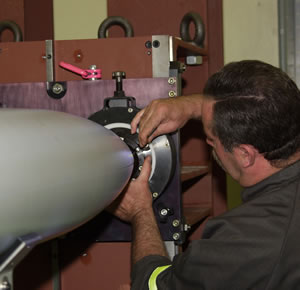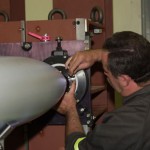

Most defense companies are making money on producing weapon systems and supporting them through their life cycle. But what happens when these weapons reach the end of their lives? for MBDA, ‘demilitarization’ of complex weapons has become a new strategic activity, says Chief Executive Officer Antoine Bouvier. Earlier this month his company won a contract from NATO Maintenance and Supply Agency (NAMSA) for the dismantling and destruction of 36,000 cluster munitions. Under this contract MBDA will establish a facility to process classified munitions in accordance with the very strict regulations that apply to defense safety; namely operational reliability and respect for the environment. The facility will be running in two years time and will be able to process and dispose of over 1,000 missiles, 22,000 M26 (MLRS) rockets and 13,000 155-mm artillery shells before the year 2017. All together, these weapons contain over 15 million sub-munitions of different types and makes, which will have to be disposed of safely.
This contract has been established within the framework of the Oslo Convention, which was ratified by France in 2010 and requires all signatory countries to dispose of their cluster munitions before 2018. To expand the weapon and submunition specialization for the handling of the wide range of submunitions MBDA has teamed with Esplodenti Sabino and AID in Italy, and Nammo in Norway. The munition processing plant will be installed at MBDA’s Bourges Subdray site in central France. This activity represents an investment of around €12 million and should create about 20 direct jobs. MBDA will own and operate the facility which will provide the services to the NATO members Defense Ministries; funding for ongoing operations (cost of demilitarization) will be covered paid by the different ministries, based on the the type and complexity of ammunition or missile.
“This fits in perfectly with our determination to establish close and sustainable partnerships with our domestic and export customers” Bouvier added, “These customers not only require guaranteed availability and sustained support for their equipment, but also that we ensure the safe end of life disposal of their complex weapons as well”.
















